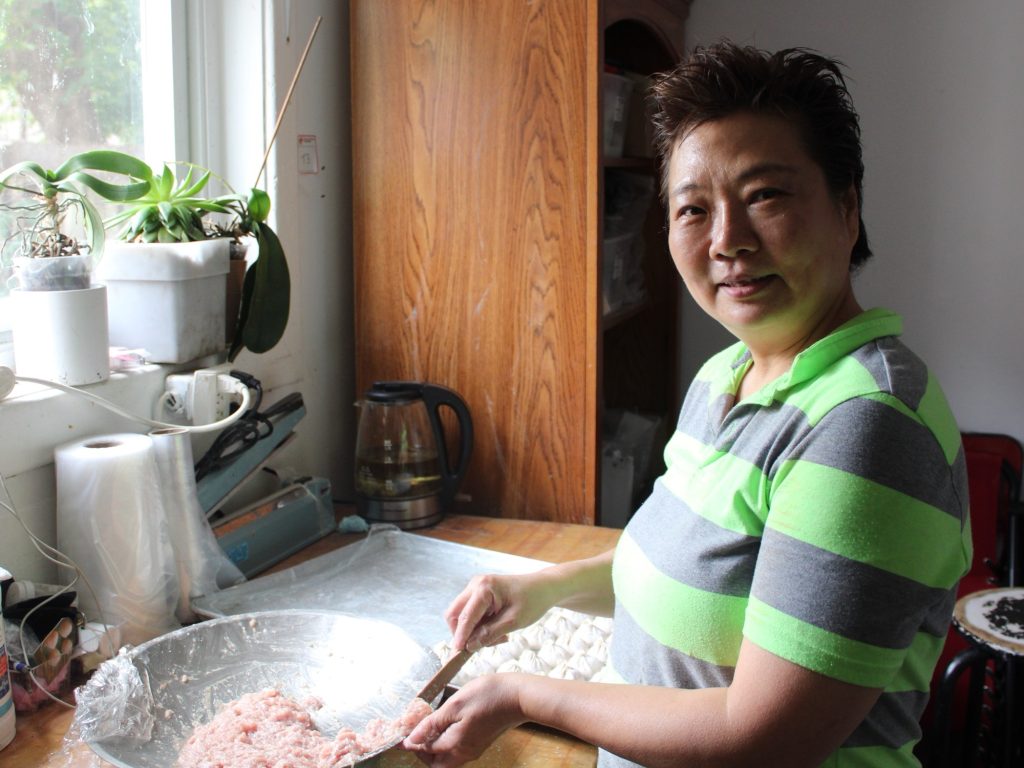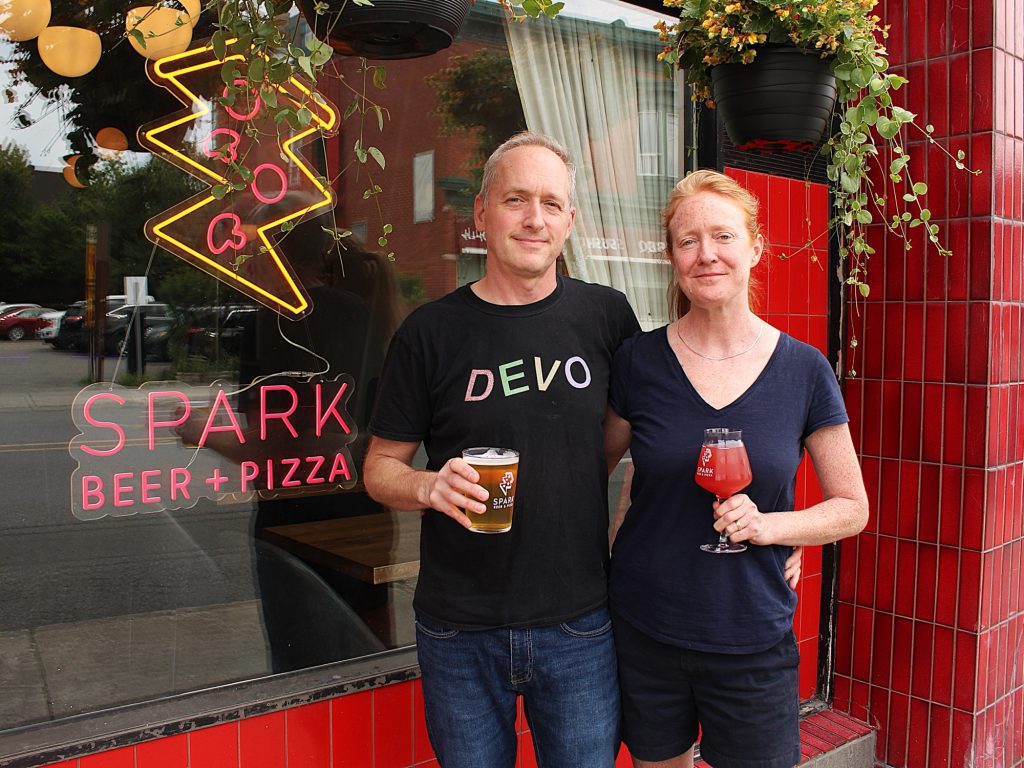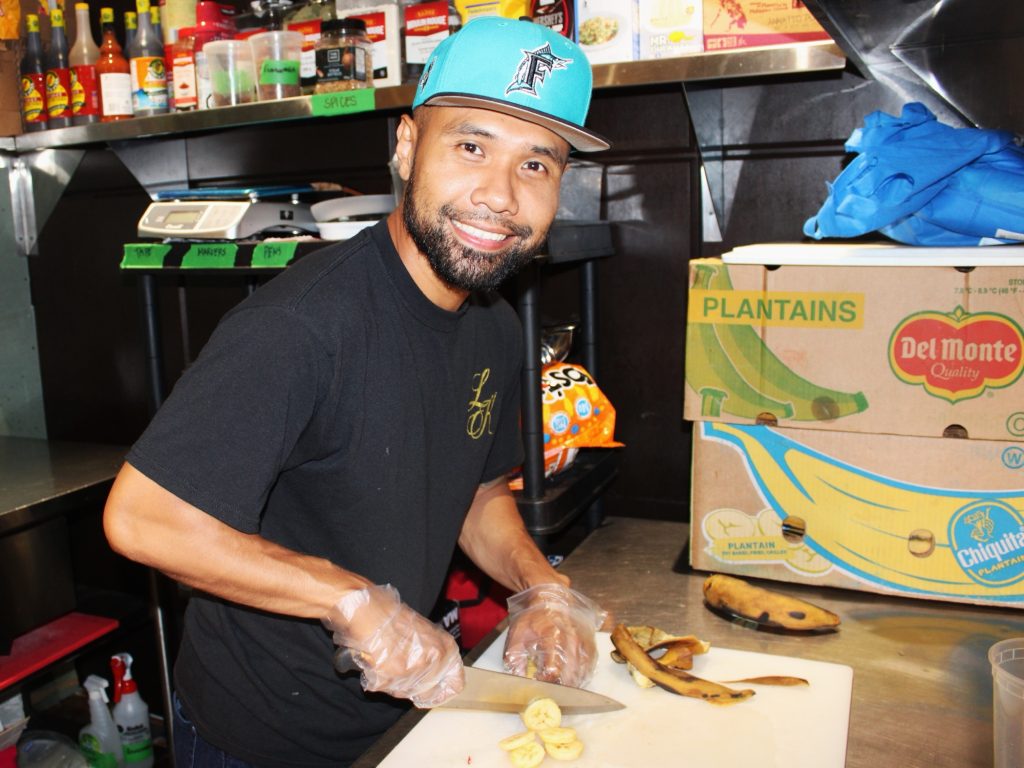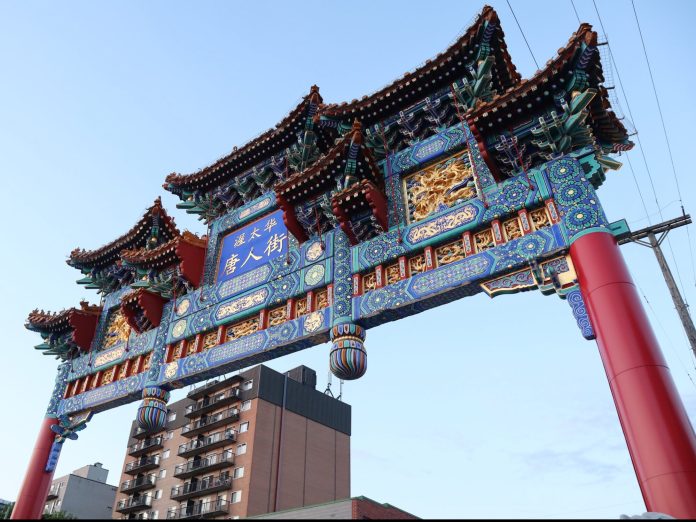To many Ottawa residents, Chinatown is a fatigued street with ranging issues. But for residents and business owners of the area, it’s a quaint community booming with talent, promise, and a long-forgotten history.
“Growing up, I knew that Chinatown existed somewhere else,” said Don Kwan, a third-generation Chinese Canadian, artist, and historian. Chinese settlers first formed a small community along Albert St. close to Bank St. and some buildings are still original.
“It’s where the Cafe Restaurant used to be, which was like the hub for the Chinese community. There was also a laundromat, a grocery store, and a restaurant that were all Asian-owned and operated. That became the unofficial Chinatown where community members started opening like-minded businesses to support each other,” he said.
It wasn’t until Kwan’s parents opened the Shanghai restaurant in 1971 on Somerset St. West that the area started to develop into the Chinatown we know today. The restaurant was a community hub for about 50 years until it closed its doors during the pandemic.
Yan Song’s Yen Fung Ding Dumpling Shoppe has been another community staple for over 25 years.
Song makes frozen Chinese dumplings by hand, which she sells in her store and wholesale. In the business’s earlier days, she said the neighbourhood was bustling and business was better.

Over the past several years, the work has become quite lonely and difficult to maintain by herself. Now, the younger generation’s lack of interest in maintaining their parents’ business is a common trend.
“Many young people are not interested in working in this industry. This work is quite difficult. I have been working in this industry since I was 25 and I’m 62 this year,” said Song. “I’d like company and to train some people but no one wants this job.”
John Sproull and Andrea Gormley have been Chinatown residents since 2004 and have seen consistent business turnover throughout those 20 years. Now proud owners of Spark Beer, a brewery that opened its doors in January 2020, the couple is excited to share their passion with “their old stomping grounds.”
“When we opened, we talked with our neighbours and everyone in the neighbourhood whom we didn’t know before, and almost immediately people were really excited about what we were doing in this neighbourhood,” John said, adding that the street had very few bars. “Even during the pandemic, which was pretty tough, we had regulars that would come in from Cambridge St., Arthur, Lebreton, Bell – and they would tell us they were from the neighbourhood and would come, buy beer and take it to go.”

JP Obidah, owner of Suya Royale, recently began sharing a taste of Nigeria with Somerset West. The debut business owner opened his doors in May 2024, intending to share his suya-marinated meat, shawarma, and tofu in a high-density area.
“There are so many restaurants that people don’t know exist here,” he said. “Once you know what’s around you, you can tap from that. The community around here has been very supportive. A couple of owners have come to visit me, eat some food and chit chat, and I’ve gone to support some too.”
Pivoting the multicultural brand
Yukang Li, executive director for the Chinatown BIA, said he is proud of the neighbourhood’s recovery, vitalization projects, and the direction it’s headed.
Concerns have been raised in the past that bringing in a more diverse clientele is threatening the strip’s Asian culture, but Li stressed the BIA’s motto is “a multicultural village with an Asian flavour.”
“We have mostly Asian restaurants, businesses, and souvenir shops, so the Asian cultural presence for the future is strong in Chinatown – after all, this is Chinatown,” he said. “At the same time, we pride ourselves as a multicultural village, so no matter which cultural background you belong to, we welcome everyone with open arms.”
To preserve and celebrate Asian cultures, the BIA has organized several events like the Chinatown Night Market, bazaars, and the Chinese New Year Parade.
These events not only promote local businesses and performers but also offer an opportunity for tourists and non-residents to see all that the neighbourhood has to offer.
Street beautification projects like the addition of statues, art, selfie stations, and branded Chinatown banners have been another top priority of the BIA. Unfortunately, Li says many statues have been stolen and damaged over the past year.
The BIA has also been looking to increase foot traffic and tourism, especially during the summer.

Kim Epino, owner of Lola’s Kitchen, a Filipino restaurant that opened in 2020, said restaurants might benefit from additional street patio space during the summer.
“It would be nice to have patios here because smaller businesses like mine need more room for people to dine in. There’s got to be a way to have more patios here and I think that would benefit people a lot more and bring more eyes,” he said.
Safety concerns prompt worry in the community
Controversy has been stirring over the safety of Chinatown since its safe consumption site opened in 2018.
Jacky Jia and Victoria Chang, owners of Kowloon Market, said they try to support the homeless population and those who use the consumption site by offering food and community resources. Regardless, each week they experience theft and safety concerns within their store.
“Sometimes people come by with needles. Even though social workers come by to pick them up, we still have to do a lot of it ourselves. They may sleep around the store, overdose in the store, and steal,” Chang said.
The owners of Spark Beer recall homelessness and drug use always being an issue, but one that is faced in every neighbourhood.
Ottawa has been battling the opioid and homelessness epidemics for years, and the addition of the safe consumption site is one way stakeholders are preventing deaths.
“There are business owners and people that like to deliberately mention the ‘issues’ that Chinatown has. There are people who use drugs and are unhoused, but that’s not a Chinatown-specific issue,” Sproull said. “It became more and more apparent [during the pandemic] because of things like the safe consumption site – which is a great service that you don’t even notice most days.”
In late August, it was announced the Somerset West Community Health Centre safe consumption site would close due to new provincial restrictions which prohibit the facilities near schools or child care facilities.
